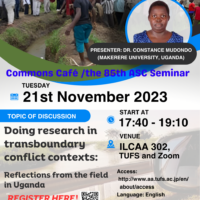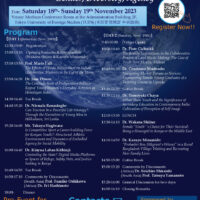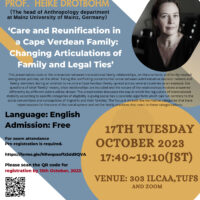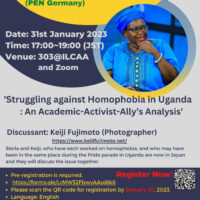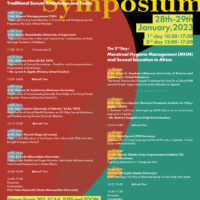2022年度第2回(⑥)研究会 2022年7月23日(土)14:00–17:00
- 1. Mwanika Kassim (Gulu University)
“Permits of Punishment: A Tale of Formalizing Informal Processes of Sugarcane Farming on Youth Livelihoods in Uganda”.
Keywords: sugarcane farming, youth, livelihoods, permits, standards
Commercial farming offers different opportunities through which the youth derive livelihoods. However, issues of standardization and protocols often undermine the impact of commercial farming upon populations such the youth who survive on informal processes in the value chain of sugarcane farming. While there are studies about sugarcane farming, there is a dearth of knowledge about what formalization of informal process means for the youth. This study aims at examining the implications licensing of sugarcane sellers on youth livelihoods in Eastern Uganda. The paper argues that the standard requirements imposed by sugar factories pose significant barriers for the poor youth, and that the process encloses sugarcane middleman-ship to powerful groups because the obtaining license is both expensive and tedious. This leaves the youth in a more precarious stat because of loss of opportunities such as brokerage confined to local tycoons and powerful compradors. This paper contends that poor groups live in danger of being bypassed by commercial farm projects through formalization auxiliary activities of commercial farming.
- Constance Mudondo (Makerere University)
“Negotiating livelihoods in complex contexts: Young people’s experiences in transboundary conflict zones in Eastern Uganda”.
Young people depend on land to derive livelihoods. Land conflicts often disrupt how young people meaningfully gain from land resources.
Evidence- Land conflicts have significant impact on livelihoods. Limited attention given to how young people negotiate livelihoods in conflict transboundary zones.
Methods: Focus group discussions, key informant interviews and in depth interviews.
Young people applied different strategies; 1) Intensifying the conflict; 2)Hiring land in conflict free zones , 3) Shifting to marginalized livelihood activities, 4) Adopting new livelihood activities for which they had limited experience, 5) Getting married in order to secure their survival and 6)Stealing.
The chapter will demonstrate that conflict contexts compel young people to adopt both positive and negative strategies, however, some strategies worsen the already insecure livelihoods.
 en_US
en_US ja
ja
